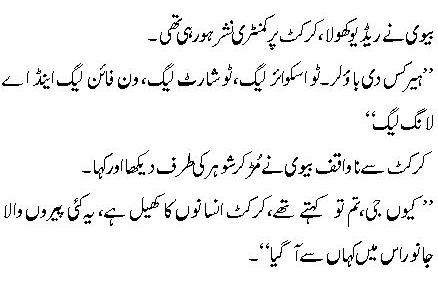source(google.com.pk)
Funny Sms Collection Biography
1.
a. Causing laughter or amusement.
b. Intended or designed to amuse.
2. Strangely or suspiciously odd; curious.
3. Tricky or deceitful.
n. pl. fun·nies Informal
1. A joke; a witticism.
2. funnies
a. Comic strips.
b. The section of a newspaper containing comic strips.
Arousing or provoking laughter; "an amusing film with a steady stream of pranks and pratfalls"; "an amusing fellow"; "a comic hat"; "a comical look of surprise"; "funny stories that made everybody laugh"; "a very funny writer"; "it would have been laughable if it hadn't hurt so much"; "a mirthful experience"; "risible courtroom antics"
SMS
Short Message Service (SMS) is a text messaging service component of phone, web, or
Mobile communication systems, using standardized communications protocols that allow the exchange of short text messages between fixed line or mobile phone devices.
SMS is the most widely used data application in the world, with 3.6 billion active users, or 78% of all mobile phone subscribers. The term "SMS" is used as an acronym for all types of short text messaging and the user activity itself in many parts of the world. SMS is also employed in direct marketing, known as SMS marketing.
SMS as used on modern handsets originated from radio telegraphy in radio memo pagers using standardized phone protocols. These were defined in 1985 as part of the Global System for Mobile Communications (GSM) series of standards as a means of sending messages of up to 160 characters to and from GSM mobile handsets. Though most SMS messages are mobile-to-mobile text messages, support for the service has expanded to include such other mobile technologies as ANSI CDMA networks and Digital AMPS, as well as satellite and landline networks.
COLLECTION
In computer science, a collection or container is a grouping of some variable number of data items (possibly zero) that have some shared significance to the problem being solved and need to be operated upon together in some controlled fashion. Generally, the data items will be of the same type or, in languages supporting inheritance, derived from some common ancestor type. A collection is a concept applicable to abstract data types, and does not prescribe a specific implementation as a concrete data structure, though often there is a conventional choice; see container (type theory) for type theory discussion.
Some different kinds of collections are lists, sets, bags (or multisets), trees and graphs. An enumerated type may be either a list or a set.
A fixed-size table (or array) is usually not considered a collection because it holds a fixed number of items, although tables/arrays commonly play a role in the implementation of collections. Variable-sized arrays are generally considered collections, and fixed-size arrays may likewise considered a collection, albeit with limitations.
structure implementing such a collection need not be linear – for example, a priority queue is often implemented as a heap, which is a kind of tree. Important such collections include:
List
Array
Stack (FILO, LIFO)
Queue (FIFO, LILO)
Priority queue (often implemented as a heap)
Double-ended queue (deque)
Double-ended priority queue (DEPQ)
In a list, the order of data items is significant. Duplicate data items are permitted. Examples of operations on lists are searching for an item in the list and determining its location (if it is present), removing an item from the list, adding an item at a specific location, etc. If the principal operations on the list are to be the addition of items at one end and the removal of items at the other, it will generally be called a queue or FIFO. If the principal operations are the addition and removal of items at just one end, it will be called a stack or LIFO. In both cases, items are maintained within the collection in the same order (unless they are removed and re-inserted somewhere else) and so these are special cases of the list collection. Other specialized operations on lists include sorting, where, again, the order of items is of great importance.
Also called heaps, keep track of the 'minimum' or 'maximum' element in the collection, according to some ordering criterion. The ordering of other elements does not matter. One may think of a priority queue as a list that always keeps the minimum or maximum at the head, while the remaining elements are kept in a bag.
Other collections can instead be interpreted as sort of function: given an input "key", the collection yields an output value. Important examples are sets, multisets, and associative arrays. A set can be interpreted as a specialized multiset, which in turn is a specialized map, in each case by limiting the possible values – considering a set as represented by its indicator function.
In a set, the order of data items is of no consequence, but duplicate items are not permitted. Examples of operations on sets are the addition and removal of items and searching for an item in the set. Some languages support sets directly. In others, sets can be implemented by a hash table with dummy values; only the keys are used in representing the set.
A "bag" or multiset, is like a set – the order of data items is of no consequence. But in this case, duplicate items are permitted. Examples of operations on bags are the addition and removal of items and determining how many of a particular item are present in the bag. Bags can be transformed into lists by the action of sorting.
An associative array ("map", "dictionary", "lookup table") acts like a dictionary, providing a "value" (like a definition) in response to a lookup on a "key" (like a word). The "value" might be a reference to a compound data structure. A hash table is usually an efficient implementation, and thus this data type is often known as a "hash".
Funny Sms Collection Biography
FUNNY
adj. fun·ni·er, fun·ni·est1.
a. Causing laughter or amusement.
b. Intended or designed to amuse.
2. Strangely or suspiciously odd; curious.
3. Tricky or deceitful.
n. pl. fun·nies Informal
1. A joke; a witticism.
2. funnies
a. Comic strips.
b. The section of a newspaper containing comic strips.
Arousing or provoking laughter; "an amusing film with a steady stream of pranks and pratfalls"; "an amusing fellow"; "a comic hat"; "a comical look of surprise"; "funny stories that made everybody laugh"; "a very funny writer"; "it would have been laughable if it hadn't hurt so much"; "a mirthful experience"; "risible courtroom antics"
SMS
Short Message Service (SMS) is a text messaging service component of phone, web, or
Mobile communication systems, using standardized communications protocols that allow the exchange of short text messages between fixed line or mobile phone devices.
SMS is the most widely used data application in the world, with 3.6 billion active users, or 78% of all mobile phone subscribers. The term "SMS" is used as an acronym for all types of short text messaging and the user activity itself in many parts of the world. SMS is also employed in direct marketing, known as SMS marketing.
SMS as used on modern handsets originated from radio telegraphy in radio memo pagers using standardized phone protocols. These were defined in 1985 as part of the Global System for Mobile Communications (GSM) series of standards as a means of sending messages of up to 160 characters to and from GSM mobile handsets. Though most SMS messages are mobile-to-mobile text messages, support for the service has expanded to include such other mobile technologies as ANSI CDMA networks and Digital AMPS, as well as satellite and landline networks.
COLLECTION
In computer science, a collection or container is a grouping of some variable number of data items (possibly zero) that have some shared significance to the problem being solved and need to be operated upon together in some controlled fashion. Generally, the data items will be of the same type or, in languages supporting inheritance, derived from some common ancestor type. A collection is a concept applicable to abstract data types, and does not prescribe a specific implementation as a concrete data structure, though often there is a conventional choice; see container (type theory) for type theory discussion.
Some different kinds of collections are lists, sets, bags (or multisets), trees and graphs. An enumerated type may be either a list or a set.
A fixed-size table (or array) is usually not considered a collection because it holds a fixed number of items, although tables/arrays commonly play a role in the implementation of collections. Variable-sized arrays are generally considered collections, and fixed-size arrays may likewise considered a collection, albeit with limitations.
structure implementing such a collection need not be linear – for example, a priority queue is often implemented as a heap, which is a kind of tree. Important such collections include:
List
Array
Stack (FILO, LIFO)
Queue (FIFO, LILO)
Priority queue (often implemented as a heap)
Double-ended queue (deque)
Double-ended priority queue (DEPQ)
In a list, the order of data items is significant. Duplicate data items are permitted. Examples of operations on lists are searching for an item in the list and determining its location (if it is present), removing an item from the list, adding an item at a specific location, etc. If the principal operations on the list are to be the addition of items at one end and the removal of items at the other, it will generally be called a queue or FIFO. If the principal operations are the addition and removal of items at just one end, it will be called a stack or LIFO. In both cases, items are maintained within the collection in the same order (unless they are removed and re-inserted somewhere else) and so these are special cases of the list collection. Other specialized operations on lists include sorting, where, again, the order of items is of great importance.
Also called heaps, keep track of the 'minimum' or 'maximum' element in the collection, according to some ordering criterion. The ordering of other elements does not matter. One may think of a priority queue as a list that always keeps the minimum or maximum at the head, while the remaining elements are kept in a bag.
Other collections can instead be interpreted as sort of function: given an input "key", the collection yields an output value. Important examples are sets, multisets, and associative arrays. A set can be interpreted as a specialized multiset, which in turn is a specialized map, in each case by limiting the possible values – considering a set as represented by its indicator function.
In a set, the order of data items is of no consequence, but duplicate items are not permitted. Examples of operations on sets are the addition and removal of items and searching for an item in the set. Some languages support sets directly. In others, sets can be implemented by a hash table with dummy values; only the keys are used in representing the set.
A "bag" or multiset, is like a set – the order of data items is of no consequence. But in this case, duplicate items are permitted. Examples of operations on bags are the addition and removal of items and determining how many of a particular item are present in the bag. Bags can be transformed into lists by the action of sorting.
An associative array ("map", "dictionary", "lookup table") acts like a dictionary, providing a "value" (like a definition) in response to a lookup on a "key" (like a word). The "value" might be a reference to a compound data structure. A hash table is usually an efficient implementation, and thus this data type is often known as a "hash".
Funny Sms Collection
Funny Sms Collection
Funny Sms Collection
Funny Sms Collection
Funny Sms Collection
Funny Sms Collection
Funny Sms Collection
Funny Sms Collection
Funny Sms Collection
Funny Sms Collection
Funny Sms Collection
Funny Sms Collection
Funny Sms Collection
Funny Sms Collection
Funny Sms Collection














No comments:
Post a Comment